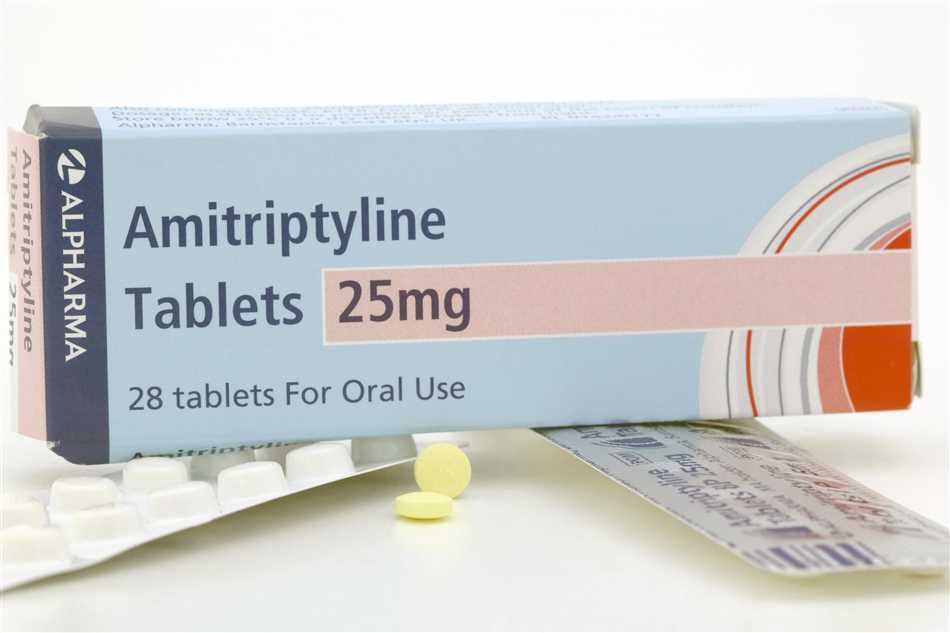
When it comes to managing pain and combating infections, finding the right combination of treatments can make all the difference. That’s why we’re excited to introduce a dynamic duo that is revolutionizing the world of healthcare: Amitriptyline and penicillin.
Amitriptyline is a highly effective medication known for its ability to alleviate a wide range of pain conditions. Whether you’re dealing with chronic pain, migraines, or nerve-related discomfort, Amitriptyline can provide much-needed relief, allowing you to reclaim your life and enjoy the activities you love.
Penicillin has long been hailed as a triumph in the field of medicine, saving countless lives since its discovery. This powerful antibiotic is known for its ability to treat various bacterial infections, from strep throat to skin infections and beyond. By targeting and eliminating harmful bacteria, penicillin helps your body fight off infections and restore your health.
But what makes this combination so remarkable is the way these two medications complement each other. While Amitriptyline focuses on managing pain, penicillin works tirelessly to eradicate the infection that may be causing it. Together, they form a formidable team that not only addresses your immediate health concerns but also promotes your overall well-being.
Whether you’re in need of pain relief or facing a stubborn infection, the combination of Amitriptyline and penicillin offers a comprehensive and effective solution. Consult with your healthcare provider today to find out how this powerful pairing can improve your quality of life.
The effectiveness of Amitriptyline in treating depression
Depression is a complex mental health condition that affects millions of people worldwide. It is characterized by persistent feelings of sadness, hopelessness, and a lack of interest or pleasure in activities. While there are various treatment options available, one medication that has shown promise in treating depression is Amitriptyline.
Understanding depression
Depression is not just a temporary feeling of sadness; it is a serious medical condition that requires proper treatment. It can impact a person’s daily life, relationships, and overall well-being. If left untreated, depression can lead to severe consequences.
The role of Amitriptyline

Amitriptyline is a tricyclic antidepressant that is believed to work by restoring the balance of certain natural substances in the brain, called neurotransmitters. These neurotransmitters are responsible for regulating mood, emotions, and sleep patterns.
Amitriptyline has been found to be effective in alleviating the symptoms of depression, including sadness, feelings of worthlessness, and loss of interest in activities. It may also help improve sleep quality and reduce anxiety.
- Alleviates symptoms of depression
- Improves sleep quality
- Reduces anxiety
It is important to note that Amitriptyline should only be taken under the supervision of a healthcare professional. They will determine the appropriate dosage and duration of treatment based on the individual’s specific needs and medical history.
If you or someone you know is experiencing symptoms of depression, it is crucial to seek help from a healthcare professional. They can provide a thorough evaluation and recommend the most appropriate treatment options, which may include medication such as Amitriptyline.
Remember, proper diagnosis and treatment are essential for effectively managing depression and improving overall well-being.
The role of penicillin in the treatment of depression
Depression is a complex mental health condition that affects millions of people worldwide. While many medications and therapies are available to treat depression, one potential treatment option that has gained attention is penicillin. Penicillin is not traditionally associated with the treatment of depression, but there is emerging evidence suggesting that it may play a role in improving depressive symptoms.
Penicillin is a widely used antibiotic that is most commonly known for its effectiveness in treating bacterial infections. It works by inhibiting the growth of bacteria, making it an essential tool in fighting off infections. However, recent studies have suggested that penicillin may have additional effects on the brain and mental health.
Research has shown that the presence of certain bacteria in the gut can have an impact on mental health, including depression. The gut microbiome, which consists of trillions of microorganisms, plays a crucial role in various bodily functions, including digestion, immune system function, and even the production of neurotransmitters (chemical messengers in the brain). It is believed that an imbalance in the gut microbiome could contribute to the development and progression of depression.
Penicillin has been found to have an effect on the gut microbiome by altering the composition of the bacteria present. This is significant because it suggests that penicillin could potentially have a positive impact on mental health by restoring the balance of the gut microbiome. By targeting and eliminating harmful bacteria, penicillin may help alleviate symptoms of depression and improve overall well-being.
However, it is important to note that further research is needed to fully understand the role of penicillin in the treatment of depression. As with any medication, there may be potential side effects and contraindications that need to be considered. It is always recommended to consult with healthcare professionals before starting any new treatment.
Consultation with healthcare professionals before starting treatment

Prior to beginning any treatment, it is crucial to consult with healthcare professionals to ensure the best course of action for your individual condition. Seeking guidance from medical experts can provide valuable insights into the potential benefits and risks associated with the treatment options available.
Expert Advice
Reaching out to a qualified healthcare professional such as a psychiatrist or a general practitioner with a specialization in mental health is recommended. These professionals are equipped with the knowledge and expertise to assess your specific situation, and can offer advice tailored to your unique needs.
During the consultation, be prepared to discuss your medical history, any current medications or treatments, and share in detail your symptoms and concerns. Honest and open communication with your healthcare professional is key in order to receive the most accurate guidance.
The Importance of Proper Diagnosis
Proper diagnosis is a crucial step in determining the most appropriate treatment plan. Consulting with a healthcare professional will help ensure that your symptoms are properly assessed and that an accurate diagnosis is made. This is paramount, as different mental health conditions may require varying approaches to treatment.
Individualized Treatment Approach
Each person’s journey with mental health is unique. Seeking professional advice will help you understand the treatment options available to you and determine the most suitable course of action. Whether it involves medication, therapy, or a combination of both, a healthcare professional can guide you towards the treatment plan that best addresses your needs and goals.
Remember, seeking professional advice is always recommended before starting any new treatment. By doing so, you can have confidence in your decision and ensure that you are taking the necessary steps towards your mental well-being.
